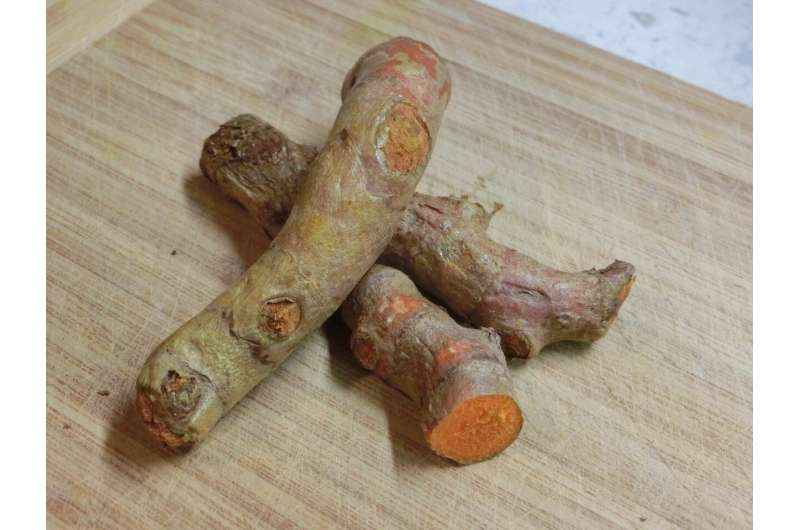
Colorectal cancer is one of the most common types of cancer worldwide. In more than half of all cases, an important protective mechanism in cells is inactivated by mutations—the tumor suppressor gene p53. The product of this gene, a transcription factor, induces a microRNA molecule called miR-34, which plays a critical role in tumor suppression.
A team led by Heiko Hermeking, Professor of Experimental and Molecular Pathology at LMU, has now demonstrated in cell cultures and in a mouse model that curcumin, a natural substance found in the spice turmeric, can bridge this silenced protective mechanism by activating an alternative, specific signaling pathway that induces the expression of miR-34. The work is published in the journal Cell Death & Differentiation.
“There were already indications in the literature that curcumin can induce miR-34,” says Hermeking, “but there was no systematic investigation of the phenomenon before now. Moreover, it was unclear what mechanism could be behind it.”
Using genetically-modified human colorectal cancer cell lines, the researchers have now demonstrated that curcumin increases the production of so-called reactive oxygen species (ROS) in tumor cells. These ROS activate a signaling pathway that leads to the production of miR-34 via the transcription factor NRF2—which then induces premature aging of the tumor cells and programmed cell death.
“Furthermore, the ability of tumor cells to migrate and invade into surrounding tissue is impaired,” says Hermeking. “We were also able to confirm in our mouse model that the curcumin-induced expression of miR-34 suppresses the metastasis of colorectal cancer cells into the lung.” In addition, curcumin made tumor cells more sensitive to the chemotherapeutic substance 5-FU by means of miR-34.
An important aspect of the results is that these effects are independent of p53, which is often lost in the majority of tumor types and would be difficult to reconstitute in all tumor cells. “With curcumin, we’ve found a substance with which we could intervene in the signal cascade beneath p53 by activating miR-34,” says Hermeking. According to the authors, the results of the study could give rise to interesting approaches for new therapeutic options, which should be pursued in further studies.
More information: Chunfeng Liu et al, Curcumin activates a ROS/KEAP1/NRF2/miR-34a/b/c cascade to suppress colorectal cancer metastasis, Cell Death & Differentiation (2023). DOI: 10.1038/s41418-023-01178-1
Citation: Colon cancer: Curcumin activates tumor suppressive signaling pathway (2023, May 25) retrieved 5 July 2023 from https://medicalxpress.com/news/2023-05-colon-cancer-curcumin-tumor-suppressive.html
This document is subject to copyright. Apart from any fair dealing for the purpose of private study or research, no part may be reproduced without the written permission. The content is provided for information purposes only.
Note: This article have been indexed to our site. We do not claim legitimacy, ownership or copyright of any of the content above. To see the article at original source Click Here













